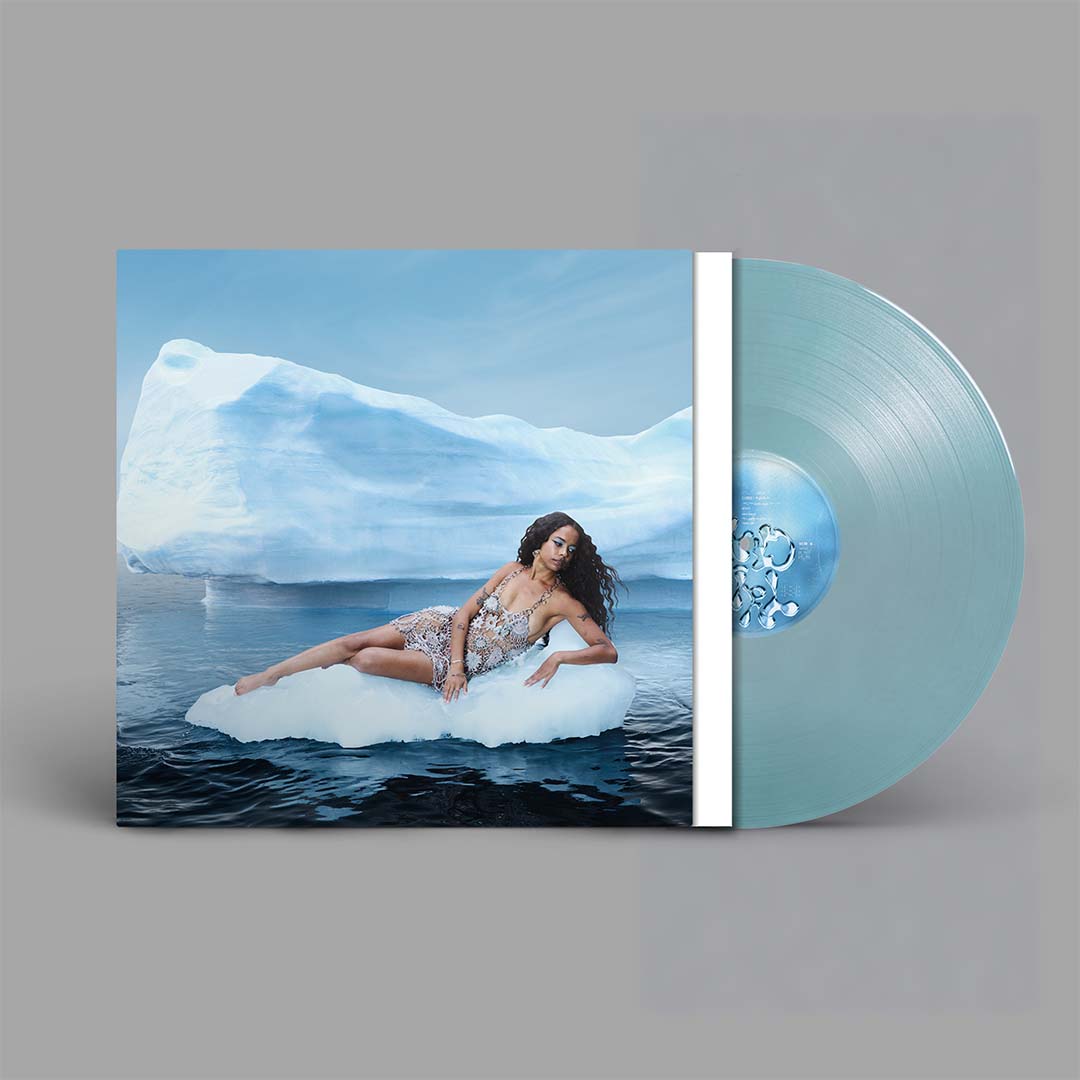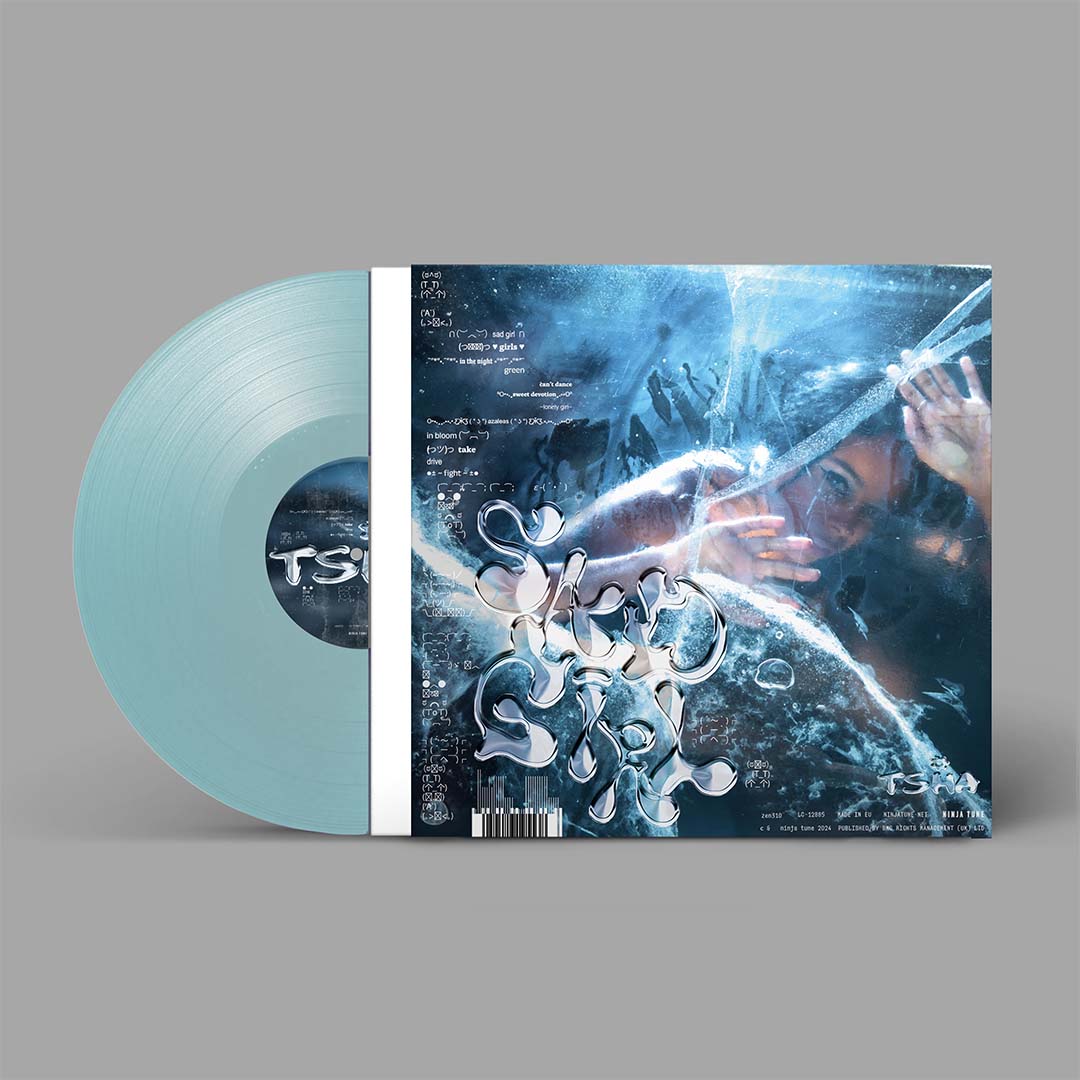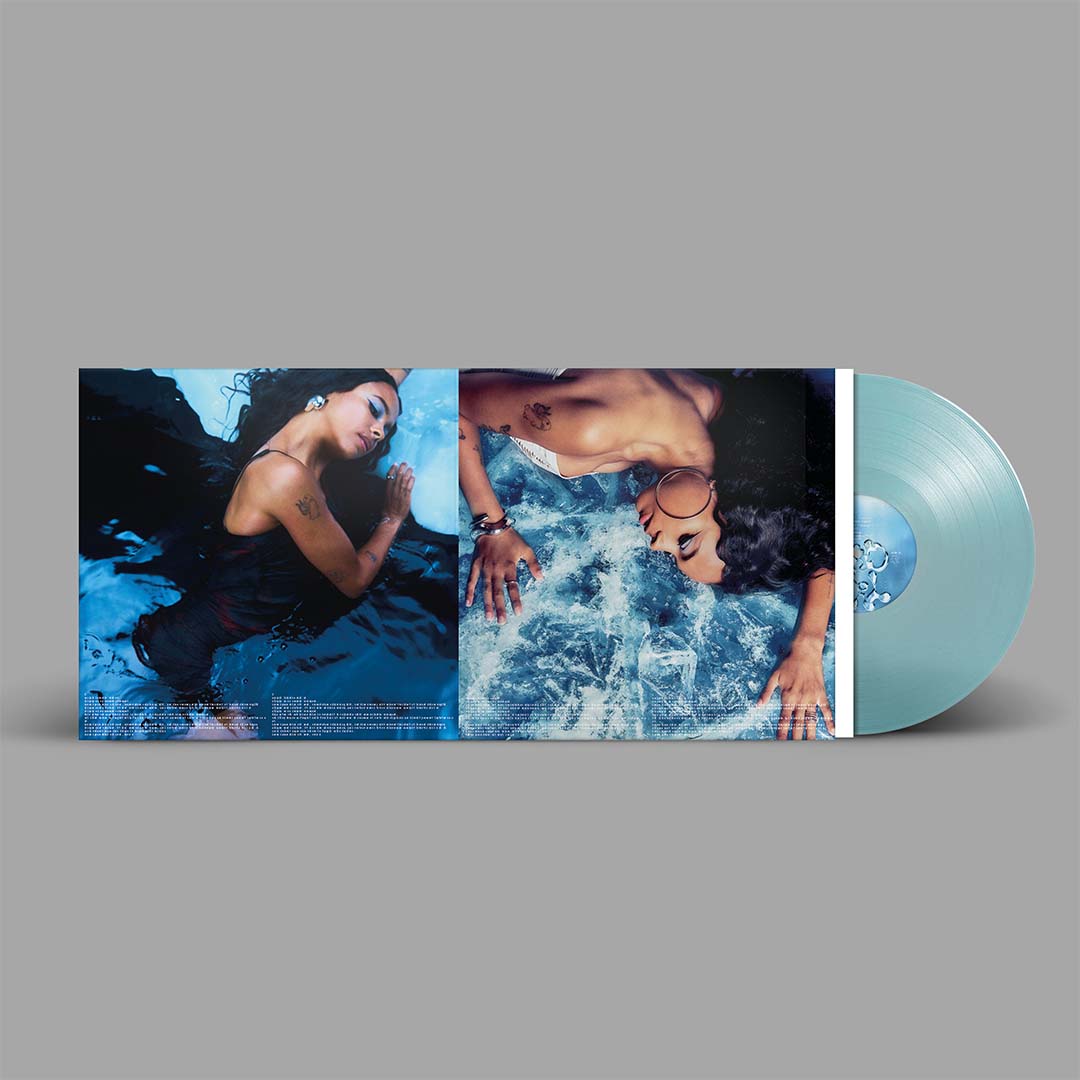Aged 21, TSHA had a dream that she was trapped under ice. She’d been depressed at the time, and imagined walking over a frozen lake, it cracking and her falling into the freezing water. After fighting to try and get out, she gave in, sinking to the bottom. That dream has always stuck in her head: she linked it to feeling like she was fighting life at the time. It would become the inspiration for the cover artwork of 'Sad Girl', her second album, due for release on Ninja Tune on September 27th. On it, she’s successfully pulled herself out of the ice, and is laid atop an iceberg, in a glam shot inspired by Thierry Mugler’s fashion photography from the ‘80s. 'Sad Girl' taps into TSHA’s teenage years – the title nods to emo-y MSN screen names and Hotmail addresses – and you can hear it in the strokes of ‘00s R&B, rude electro and anthemic techno, recalling the bittersweetness and angst of early adulthood. Amid snatches of stillness and reflection, it’s a dance record at its core: hot club bumpers rub up against hypnotic floorfillers and MTV-worthy pop. Age 19, TSHA left Fareham and moved to London. She got a controller, started mixing, then built a mobile DJ setup to take to kids’ birthdays, weddings and Christmas parties. Those gigs might have killed her soul a little bit, but they gave her a clear understanding of what people gravitate to. She taught herself production, influenced by artists like Four Tet, Sampha and her idol Bonobo, who would later come to support her, featuring her on his fabric presents compilation. In 2018, she self-released her first EP, ‘Dawn’, named after her mum. TSHA’s first releases were grand, orchestral-sounding and organic, and Ninja Tune EP ‘Flowers’ soon followed. In 2022 she released her debut album, ‘Capricorn Sun’, which built on these bright, melodic house foundations, bringing in UK garage and rave sensibilities. It was named Album of the Year by DJ Mag and BBC R1 Dance, while Music Tech mag made her their Producer of the Year – which meant a lot, as a female producer whose production skills were often overlooked. The unifying thread is in her music’s ability to convey emotions – take, for example, the heart-tugging “Sister”, which came about during the 2020 lockdown after she discovered she had a half-sister. All this has clearly resonated: TSHA’s music has earned well over 180 million streams, while she’s been nominated for a MOBO for Best Dance Act, and a Grammy, for her writing work. Late last year, she collaborated with Ellie Goulding, after the popstar DMed TSHA saying she loved her work. “Somebody” (with Gregory Porter) was the outcome, an emotive shuffler with artwork inspired by Avril Lavigne’s ‘Let Go’. “Giving Up” (ft. Mafro) was named by Spotify as their fourth best electronic track of 2022. Now a rising superstar in the electronic world, TSHA has been tipped by the dance music press as well as the likes of the Observer, Billboard and Interview mag. She has appeared on the covers of Mixmag and DJ Mag, while collecting accolades such as becoming a DC-10 resident, delivering a BBC Essential Mix and more. Gearing up for even more shows, including All Points East, Lost Village and headline shows in North and South America, Europe and beyond, she’s showing no sign of slowing down. All this is unsurprising, given TSHA has been dominating dancefloors for some time. She regularly supports stadium-sized artists such as Chemical Brothers, Flume and Fred Again while playing out at over 100 shows a year. Her recent Ibiza tour saw her giving out hand fans and baby tees adorned with ‘IBISHA’ bubble writing to heaving, sweaty crowds. 'Sad Girl' contains her most danceable work to date – single ‘Sweet Devotion’ with Caroline Byrne is the first track she’s been confidently able to slot between the New York and Chicago house and techno grooves of her acclaimed sets. While it finds joy in hedonism and escapism, 'Sad Girl' is an album that addresses difficult feelings. Interlude “Lonely Girl” channels her isolated childhood in the predominantly white town of Fareham, near Portsmouth, crafting Secret Garden-esque fairy tales in her head. “Green” was written after an argument with her partner, where she candidly sings (the album sees her debut her vocals for the first time) about toxic positivity. TSHA might radiate confidence, grinning ear to ear, in DJing videos posted on social media, but she’s also openly talked about struggles with her mental wellbeing. Titular track ‘'Sad Girl'’ has a spoken word intro from Dan Whitlam, themed around feelings of loneliness and unhappiness despite being surrounded by people. From there, the record launches into “Girls” – a proper club anthem for the girls and gays to soundtrack messy nights, buoyed up by heavy electro production and an earworm hook sung by Rose Gray: “it’s my body it’s my mind”. “Can’t Dance” recalls Craig David-era R&B guitar plucks, looping in Master Peace for a cheeky drum ‘n’ bass tune inspired by school discos where people would shyly cling to the walls. ‘In Bloom’, vocalled by Abi Flynn channels the dramatic spirit of y2k pop divas such as JoJo and Christina Aguilera, and TSHA goes for pumping house on ‘Take’, which features ballroom stabs for crowds to dip and death drop to. 'Sad Girl' plays freely with genres – TSHA is someone with an encyclopedic knowledge of music, and her personal tastes range from Pink Floyd to Caroline Polachek. Second Ingrid Witt collaboration “Azaleas” takes shape as an ethereal ballad, while angry track “Fight” closes the record, a cut inspired by Underworld’s “Born Slippy” after she witnessed their dance-punk hybrid take shape on stage at Coachella. On “Green”, TSHA sings about living “a thousand lives”, and she has very much done that: she’s been a dancer, a bartender, a bottle waitress, worked in an old people’s home, acted, done presenting work. Growing up in a small town, her childhood was tough: she was the only girl, and the youngest – something she counteracted with her wildly active imagination. Her family didn’t have much money and their house used to get raided, her brother struggled with addiction and, she says, “it’s insane that I didn’t end up fucked up, basically”. Her first taste of dance music came through her brother, who DJed, and her ex-raver mum. The UK rave sounds her brother spun at home sat at odds with the Destiny’s Child and Sean Paul that she’d listen to with her friends at school. With 'Sad Girl', TSHA welcomes a new era, one where she’s putting her own vocal stamp on tracks and approaching the genres she’s always wanted to, rather than seeking approval from her peers. Rather than showcasing just the euphoric or melancholy sides of her character, TSHA puts it all on display in 'Sad Girl'. It’s a body of work that shows it’s OK to be sad, and you can even revel in it – you can’t have the highs without the lows, after all.



